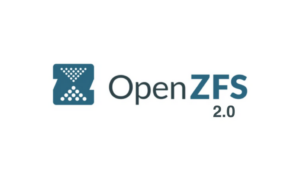

Drop by for a closer look at how one sided the competition is and consider following some of the links to become more familiar with ZFS. RAID10 is the fastest conventional RAID topology and ZFS mirrors beat it every test, sometimes by an order of magnitude as opposed to a few percentage points. The results are clear and not at all surprising for storage gurus out there. They tested the systems with both 4K and 1M blocksizes, and with a single process, an iodepth=1 and iodepth=8 to give you an idea what real world performance would be. In order to find an answer they installed eight 12TB Seagate Ironwolf HDDs on a system using the LSI-9300-8i 8-port Host Bus Adapter. So the question Ars Technica has raised has to do with what you might be missing by making the choice to go with one solution or the other.
#ZFS VS OPENZFS CODE#
OpenZFS is licensed under the CDDL, which is much more liberal and allows users to modify and redistribute the code with a greater degree of freedom. And the Btrfs filesystem is under the GPL, which allows users to take the source code and modify it. On the other hand RAID is familiar to a wider audience, especially for businesses. OpenZFS is not compatible with the GNU GPL license.

Since version 0.6.1, ZFS is considered 'ready for wide scale deployment on everything from desktops to super computers' stable for wide scale deployment, by the OpenZFS Project. There are out-of-tree Linux kernel modules available from the ZFSOnLinux Project. ZFS is a go to for many as it incorporates a logical volume manager, a RAID system, and a filesystem all at once and physically setting up multiple disks takes more time than the build time once you boot. A detailed list of features can be found in a separate article. FSx for OpenZFS is powered by the AWS Graviton family processors and AWS SRD (Scalable Reliable Datagram) Networking, and can deliver up to 1 million IOPS with latencies of 100-200 microseconds, along with up to 4 GB/second of uncompressed throughput, up to 12 GB/second of compressed throughput, and up to 12.5 GB/second throughput to cached data. When you are setting up a storage repository on Linux you have a lot of choice in configurations, more so than on a Windows server.


 0 kommentar(er)
0 kommentar(er)
